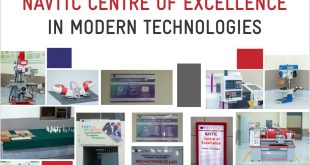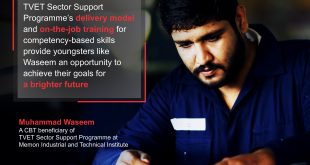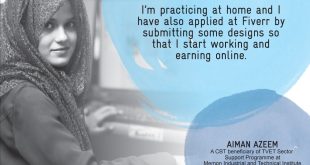Dera Ghazi Khan is a strategically located district of Punjab, Pakistan with its geographical boundaries touching three other provinces. Due to this central location, it can be called a gateway to lands and terrains inhabited by people with myriad ethnic and cultural backgrounds.
It is one such place from where natives of Punjab, Sindh, Balochistan and Khyber Pakhtunkhwa are equi-distant and close enough to meet each other with ease. The land is fit for agriculture except the mountainous terrain which starts from here and enters Balochistan.
The district also boasts of having the potential to offer a much needed hill station in the region. Developed during the colonial era to serve as summer capital of Punjab, Fort Monroe is a nearby place having all the attributes of a hill station. Picnicker and vacationers would love to come here but unfortunately not much could be done over the years to convert into a tourist destination.
Almost the same is the situation with the whole district which has not flourished in accordance with the potential that exists. The literacy rate among the locals is low and job opportunities limited. This makes a large number of people to immigrate and head to greener pastures to make a living.
Things got worse during the floods of 2010 and later on due to flash floods and heavy rains-a regular phenomenon in the region. People lost lives, houses, belongings, livelihood and many other things but what they clung to was just hope. Against all odds, they decided to fight on and rebuild their lives.
Fortunately, the local and international NGOs, donors, governments and philanthropists stepped in well in time to keep this flame of hope burning.
Several assistance programmes and initiatives have been launched in the region to help the locals in several ways. There have been cash grants, food supplies, medical camps and provision of medicines to flood affectees etc. All this support came as a blessing to them but the biggest concern was as to how would they survive once the helping hand was not there?
 It was critical to enable them to earn for themselves and their families and rebuild all they had lost, says Tanvir Ahmed, Principal, Vocational Training Institute (VTI), Dera Ghazi Khan, managed by the Punjab Technical and Vocational Training Center (PVTC).
It was critical to enable them to earn for themselves and their families and rebuild all they had lost, says Tanvir Ahmed, Principal, Vocational Training Institute (VTI), Dera Ghazi Khan, managed by the Punjab Technical and Vocational Training Center (PVTC).
“Our institute is running a programme under which we train the deserving youth in welding and fabrication trades. These professions are high in demand, both within the country and abroad, and promise a bright future to the skilful,” he adds.
The VTI Principal states the said training course is being offered free of cost to 33 students enrolled under the Funds for Innovative Training (FIT) Programme, an initiative taken under the Technical and Vocational Education and Training (TVET) Reform Support Programme. It has been ensured the youth badly affected by floods benefit from this programme, he clarifies.
The programme is a multi-lateral initiative co-funded by the European Union (EU), the Embassy of the Kingdom of the Netherlands and the Federal Republic of Germany and is being implemented in Pakistan by GIZ.
The total cost of running this one-year programme is a little above Rs 100 million. The trainees are entitled to get Rs 2000 stipend per head every month, free uniforms and free books. The VTI was also supposed to buy advanced MIG and TIG machines and a 22 KVA generator from the funds allocated for this purpose.
 Tanvir says the training course was advertised through newspaper advertisements. The message was also spread verbally and people apprised of the fact that training at the VTI would be provided in an ideal environment. “It’s in total contrast to the environment at shops where mentors (Ustad in local language) are the only source of knowledge. Trainees are vulnerable to risks, abuse and maltreatment.”
Tanvir says the training course was advertised through newspaper advertisements. The message was also spread verbally and people apprised of the fact that training at the VTI would be provided in an ideal environment. “It’s in total contrast to the environment at shops where mentors (Ustad in local language) are the only source of knowledge. Trainees are vulnerable to risks, abuse and maltreatment.”
The response was overwhelming as the VTI had announced welding/fabrication training programme for the first time. The institute received well above 100 applications, and final selections were made on the basis of aptitude test and interviews.
 Khizer Hayat, 29, is a beneficiary of the ongoing training programme. He has done his Diploma in Commerce (D. Com) and tried endlessly to find a job but failed miserably. In the start he aimed for an accounting job but later on he was even ready to accept a clerical one.
Khizer Hayat, 29, is a beneficiary of the ongoing training programme. He has done his Diploma in Commerce (D. Com) and tried endlessly to find a job but failed miserably. In the start he aimed for an accounting job but later on he was even ready to accept a clerical one.
But unfortunately even this option was never available to him. He was highly frustrated and depressed when he made a major decision of his life. It was about getting admission in the welding course offered under the FIT programme. He had to spend a significant amount of money on fortifying his badly damaged house, so paying for education or training was out of question. These issues were taken care of under the said programme and he decided to join immediately.
Khizer is married with two children. His wife looks after the family which also includes his father who is a mason. Khizer gets Rs 2,000 in stipend under the project but he needs more money to feed the family and meet other unavoidable expenses they have to incur every day.
He has worked part time as salesman at a bookshop. Now, he is mulling an offer from Imran Mechanical Works-manufacturers of agricultural equipment-who are keeping track of what the trainees are learning at the VTI.
“I had lost hope. I did not know how I would rebuild my life. But now I feel I am on the right track. The trades I am learning here promise huge returns,” he expresses.
 Adnan Mustafa, 19, has done his matriculation. His family is a major victim of floods as they were living in a settlement quite close to the railway track when they hit this region. Called Siddique Abad, this locality remained inundated in for quite long.
Adnan Mustafa, 19, has done his matriculation. His family is a major victim of floods as they were living in a settlement quite close to the railway track when they hit this region. Called Siddique Abad, this locality remained inundated in for quite long.
Adnan’s life changed the moment he saw the newspaper advertisement placed by the VTI. Knowing a lot of people who had gone abroad as welders and returned as millionaires, he had always dreamt of embarking on a similar journey.
“I’m sure this dream will shortly be a reality. I couldn’t pursue my goal for the lack of resources and training facilities in the area. But now lady luck is shining on me.” Till his dreams become a reality, Adnan will have to try his luck within the country. Even today he goes to a workshop in the evening and earns Rs 300 per month. The amount may be small but the contentment he achieves is immeasurable.
“Our trainees will not find them alone in their quest to find a job. The institute will do its best to help them out,” vows the VTI Principal. He says the role of their Admission and Placement Officer (APO) will be activated toward the end of the course.
He keeps a liaison with potential employers including industrial establishments such as Ghazi Tractors, DG Khan Cement, Choti Textile Mills, PARCO Oil Refinery and a large cluster of cotton ginning units in this high-yield cotton producing region.
“I am quite hopeful our trainees will find placements at these entities soon after they graduate.”

 Pakistan TVET REFORM Support Programme Technical and Vocational Education and Training (TVET) Reform support Programme
Pakistan TVET REFORM Support Programme Technical and Vocational Education and Training (TVET) Reform support Programme









